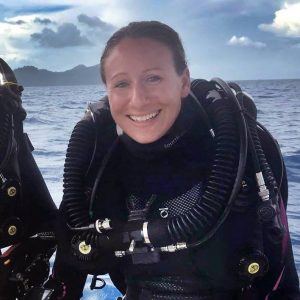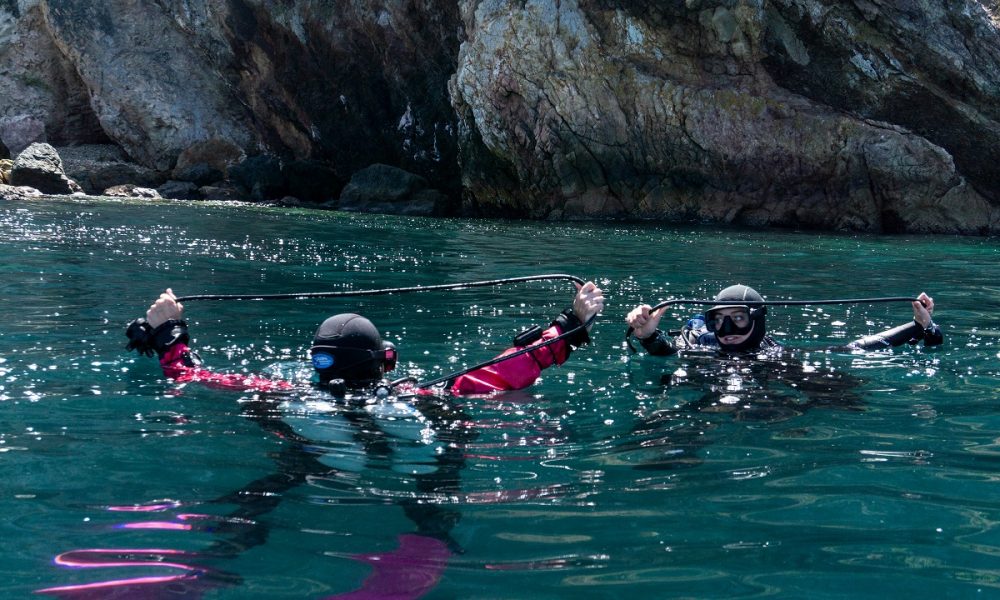Kay Dee
Contributor
Wholeheartedly disagree with that one.20 years of experience doesn’t mean anything.
Edit: That is, while it might not mean 'everything', 20 years of experience certainly means something.
Welcome to ScubaBoard, the world's largest scuba diving community. Registration is not required to read the forums, but we encourage you to join. Joining has its benefits and enables you to participate in the discussions.
Benefits of registering include
Wholeheartedly disagree with that one.20 years of experience doesn’t mean anything.
Wholeheartedly agree with that one.. Yes use a checklist. But it’s not that simple.
The only conclusion you can draw from what NSS-CDS wrote is that 20 years ago he got certified to cave dive and that he had “many” dives on that rebreather and that “most” of his dive were at deeper sites on that rebreather.Wholeheartedly disagree with that one.
Edit: That is, while it might not mean 'everything', 20 years of experience certainly means something.
I have written about this in the past based upon my experience in the world of education. In assessment theory, a scoring guide for assessing student performance that is too complicated is worthless--assessors ignore it and go by their own internal guidelines. The same is true for manuals and other information guidelines--too much information is the same as (or even worse than) too little information, because it overwhelms the reader and will be ignored. It is one of the reasons that the common RTFM advice for new users of devices is unheeded--the manual they are being advised to read is too much for anyone to digest.I have used them in the past but found almost all of them too complicated and gave up on them.

Argh, re my now bolded, if your talking only about that somewhat vague statement, and it seems you were in retrospect, then I agree. I admittedly did not read back through the thread, just looked at the the one liner that you seemed to make the comment 'about' (i.e. "20 years of experience on a CCR is notable and really underscores the need for continued vigilance throughout our CCR diving careers") and what I would have meant to imply if I had made that 'experience' statement .The only conclusion you can draw from what NSS-CDS wrote is that 20 years ago he got certified to cave dive and that he had “many” dives on that rebreather and that “most” of his dive were at deeper sites on that rebreather.
The problem with this statement is that it doesn’t give us any useful information to assess his experience.
On one hand he could have been certified 20 years ago to cave dive, and had sporadically dived since then accumulating 100 dives (many) over those 20 years with 80 (most) of them in deeper caves.
I think we’d all agree that 5 dives a year isn’t going to make someone proficient at diving.
Another alternative is that he has been diving the same ccr in the same manner for 20 years without any sort of continuing education, a lot has changed in those 20 years.
And the third alternative is that he was very current and proficient attending multiple classes or educational opportunities, routinely diving the breather on demanding dives and he was truly proficient at diving it.
Here is an example of an NTSB report showing the difference in what is captured.
I really like GUE EDGE although it’s more of a flow but the challenge response nature of it, and the team aspects covers all of the elements needed for OC diving.So can anyone suggest a good checklist for OC tech dives?
Would love to start using one.

 indepthmag.com
indepthmag.com
Yea, the university where I teach really, really wants marking rubrics and learning outcomes. That in itself is not a bad thing, but sadly it's too often the "everything is a hammer and everything else is a nail" approach that results in unusable dreck. We had to do uni-level learning outcomes to satisfy a 3rd party certification body and ended up with stuff so generic that brushing your teeth and smiling could qualify for a degree.I have written about this in the past based upon my experience in the world of education. In assessment theory, a scoring guide for assessing student performance that is too complicated is worthless--assessors ignore it and go by their own internal guidelines. The same is true for manuals and other information guidelines--too much information is the same as (or even worse than) too little information, because it overwhelms the reader and will be ignored. It is one of the reasons that the common RTFM advice for new users of devices is unheeded--the manual they are being advised to read is too much for anyone to digest.
